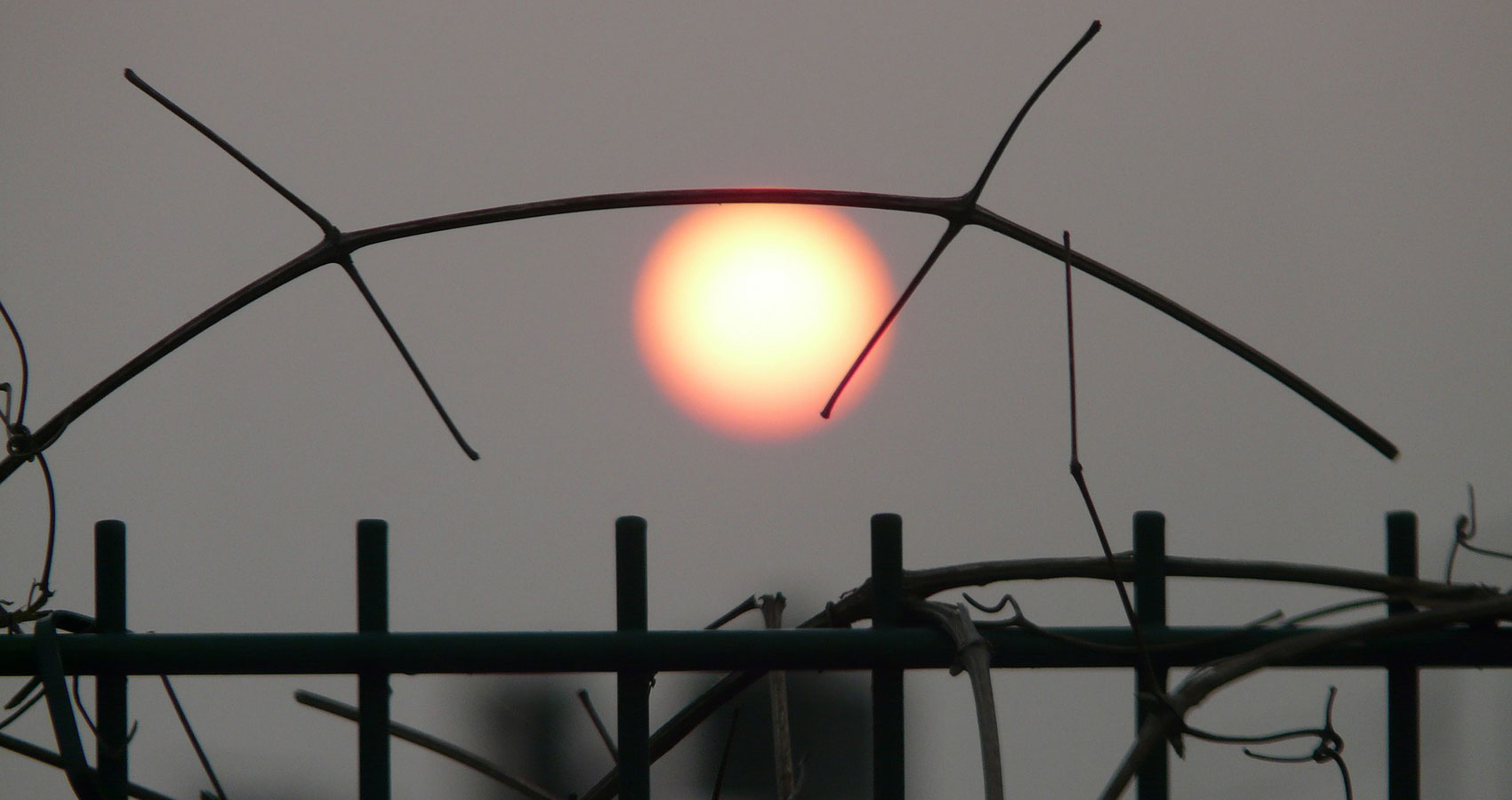Heavy Is The Hand That Writes ‘The End’
written by: Daisy King
@stormsinteacups
1. Nothing has been noticed yet. Nothing has been felt. Calendars still shed pages and schoolchildren keep growing up. Newsreaders always speaking in tongues, in muted voices giving soundless shapes to weightless words. The tide still comes in and goes back out. The clock tower chimes again; nobody hears. The sea is a mirror.
2. They will eventually say that they always knew, even as early as this. In basements and fifth floor apartments, these individuals have headaches, bad dreams they can’t fully remember, persistent deja vu. Tiny breakdowns felt like repeated tiny earthquakes. The heavy bearded man sleeping on the street outside the train station has felt it. Collectors of article clippings reporting terrorist attacks and loudly declaring themselves non-believers probably felt it too. But they weren’t to know this was the real thing. Many of the incarcerated population might have felt it with fight and not fear, but their view came in slices, from behind fortified walls, mostly recycled, or only remembered.
3. Light sleepers are woken by friction. Paperclips, earrings, the buttons on winter coats. They swear their televisions aren’t working. They secretly swear that the figures on the television aren’t who they are supposed to be, they’ve been replaced by impostors. Breezes seem to thrum and sunbeams whistle through hair and fingers. Under the cacophony of everyday, small bells are heard ringing.
4. No one can say the last time they remember a new novel being published and publicised. Favourite radio channels are tuned out when listeners realise they have heard the same songs on a broken loop lasting about a week, and every week starts and finishes to the same soundtrack. Magazine articles are chewy, conversations about current events stick to people’s teeth. Something feels different but nobody says anything because nobody understands exactly what has changed. More people hearing bells, fearing insanity, accepting loneliness. The priest notices that the church pews are empty but so many come asking to confess that he dreams in black and white, and words in the confession box feel like words exchanged at the bank and at the supermarket. There’s a commonality in the way food smells. Drinking water has more viscosity. It feels harder to pick up a pen. Furniture appears to sigh in frustration when you sit or lean on it.
5. Policemen cave in the cheekbones of a seventeen year old car thief. Their radios are scattered with reports of domestic violence, fire-setting. The neighbour’s cat turned up dead in a garbage bag in the shallow parts of a reservoir. Breezes seem to bruise and sunbeams sting.
6. The heavy sleepers are woken by large bells ringing, knocking about in bell-towers. Some people hang flags from their balconies. Those who live on the ground floor throw beer bottles out of their windows. Long vindictive and threatening messages are passed back and forth between computer keyboards. A disproportionate number of people privately plan attacks on strangers, on family members, in schools and on playgrounds and in churches. Hospital nurses stay home with crippling migraines. A politician is quietly arrested on the grounds of sexual assault. Trees falling in the forest, everyone can hear them. Nobody explains why the leaks from nuclear plants are infecting surrounding civilisations. Nobody explains why no help is coming. Nobody explains God anymore and the priest wonders whether he ever existed. Roofs ripped off. Rivers drying up. The incarcerated broke out then broke back in, reading their own last rites. Bridges are teeming with people who dream of jumping.
7. Houses are left empty, when families pack their belongings into cars and just drive away, with nowhere to go. Policemen break the spine of a fourteen year old vandal. Most people don’t read magazines or watch the news. Every well-known radio personality has gone quiet. When books and music records are burnt, people yell and cheer and fight, some throw pipe bombs, some set cars and houses on fire too. People don’t pick up pens anymore, nothing is written, no names are signed. The monuments in cities cannot be repaired, and the pigeons that once crowded them, like all birds, have become extinct.
8. Even the smaller towns are flattened, their foundations pulled out and crushed. People rarely say their own names with so little need to. Trains don’t run and when the air traffic couldn’t be controlled and a plane full of people making a last effort at escapism dropped from its road in the sky, nothing was left but ash. Breezes are bloody and violent, sunbeams stop. While the priest tries to pray, the congregation pull his church down around him and when he turns to God, all he hears are footsteps. Hundreds of people in a crowd followed one another off a bridge.
9. An epidemic of self-mutilation. Revolutionary suicide. It is impossible to stand. Nothing moves, nobody tries. Nobody knew the extent of damage until it was already beyond repair. Smoke does not rise, it just hangs, moving horizontally. The only things that don’t break are the waves, boy’s voices. Not even promises get broken anymore because nobody makes them.
10. Complete catastrophic destruction. Damage is entirely total. Nothing is felt but perhaps the very quiet motion of the hour hand on a clock. The sea is white.
- A Permission Called Gravity - August 10, 2025
- Somewhere Between Rules and the Horizon - May 25, 2025
- Amends - November 11, 2020



